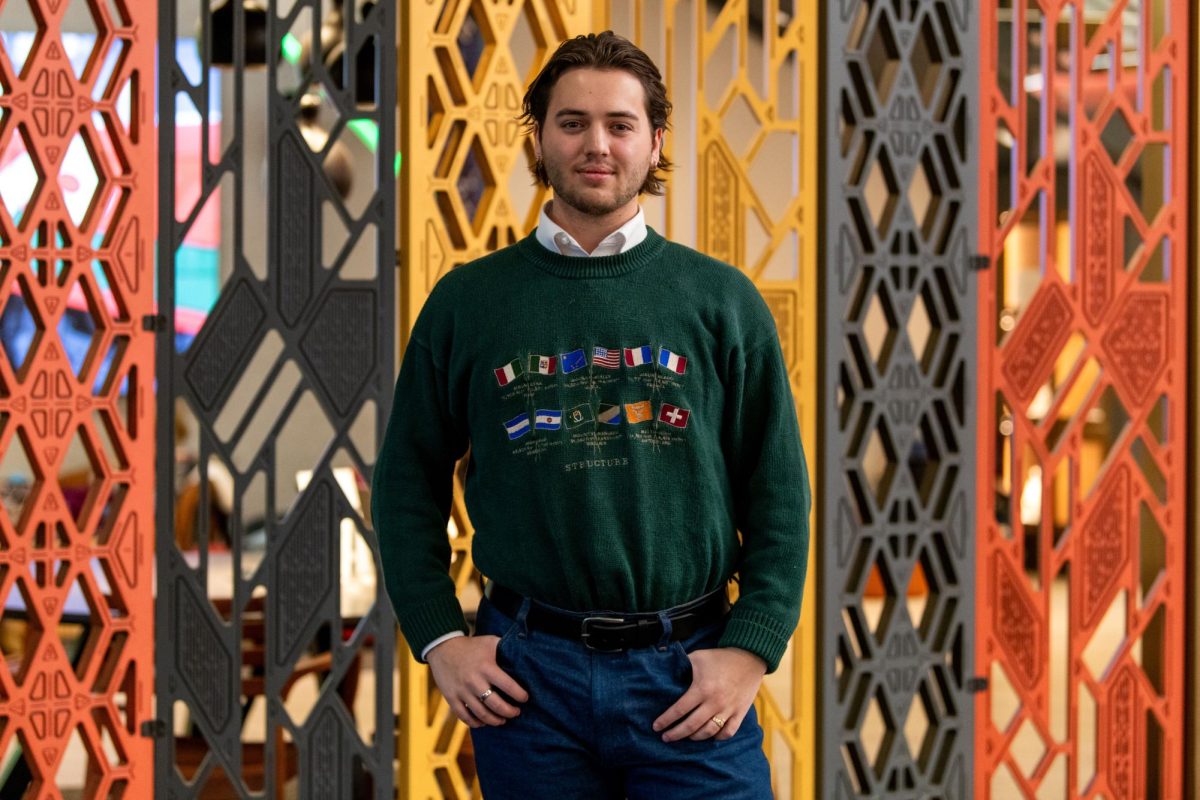Pitt student to run through Sahara
April 14, 2010
Running 180 miles in 10 days across the Sahara desert isn’t something most students do… Running 180 miles in 10 days across the Sahara desert isn’t something most students do two weeks before finals.
But for Pitt junior Andrew Dilla, this trek is an exciting reality.
Dilla, who is from Edinboro, Pa., is a youth ambassador for impossible2Possible, a nonprofit group that encourages people to perform feats of strength and endurance to raise awareness about sustainability and other world issues.
Ray Zahab, the founder of impossible2Possible, said he created the organization to show people that they have the capacity to do extraordinary acts.
“We so underestimate what we are capable of doing,” he said. “We have limitless potential.”
Dilla, 20, leaves today to make his journey to the north African country of Tunisia with three other students — all from Canada — to demonstrate the importance of clean drinking water.
Pushing the limits
To qualify for the trip, Dilla, who is in the Panther Cycling Club at Pitt, filled out an application with essay questions and then had a phone interview with Bob Cox, impossible2Possible’s executive director.
“I guess my bike trip and the Boston Marathon were kind of selling points,” he said.
Two summers ago, Dilla and his father bicycled 3,800 miles from San Francisco to Yorktown, Va., in 49 days. Prior to that, he participated in the Rock ’n’ Roll Marathon in San Diego, for which he raised $3,800 for the Leukemia & Lymphoma Society. Local and regional bands surrounded the race track while Dilla ran the 13-mile course. He clocked in at 3 hours and 10 minutes.
Last year, Dilla, who was part of his high school’s cross country, track and football teams, ran the Boston Marathon as well.
He said he expects his experiences in Tunisia to be different from his experiences in marathons.
“It will be a lot slower. It’s not a race, and it’s a lot more team-based. We’ll be taking a lot of breaks — it doesn’t take all day to run 20 miles,” he said. He added that there won’t be fans cheering the team on either, like in his past races.
Dilla said he has been training for this trip by himself since the end of January, when he learned that he had been accepted to the impossible2Possible program.
He also received Olympic-level training from Zahab’s brother, John, who coaches some Canadian Olympic athletes. The training program he made for the team began on Feb. 8.
Dilla said the regimen includes running six days per week: One day is speed work, one day is hill work and weekends are devoted to long runs that could last for two hours.
“One of the most important parts about it was running with a hydration pack [a backpack with a hose that allows runners to drink hands free], because we have to get used to taking … fluids while running and eating on the run,” he said.
He said he spends much of his time running on soft surfaces, such as those found in Schenley Park and Frick Park, because they have less impact on his joints.
The terrain of the desert will present a change, though. A large part of the region the team is running through is salt flats, but there will probably be sand dunes as well, he said.
To prepare for the change of scenery, Dilla consulted an unusual source — Star Wars. Scenes from the movie featuring the fictional planet Tatooine were shot in Tunisia.
“I actually just watched ‘A New Hope’ the other day to see where I’ll be going,” he said. “There’s a canyon where that part of ‘Star Wars’ was filmed in, and ‘Raiders of the Lost Ark’ was also filmed there.”
He said the route through Tunisia will begin in Tozeur, in southwest Tunisia, and end in Gabes, along the country’s southeastern coast.
Cox and Zahab, both of whom having experience with endurance events, will accompany the team.
“I’ll be running every step of the way,” Cox said. “We run as a team. It’s not a race. It’s their expedition; we’re there to support them.”
Dilla said the two train “a little bit differently” than other team members do, but both are very experienced with running.
While they are in Tunisia, Zahab, Dilla and the other team members will film videos for “BackStory,” a show on CNN International and will be videoconferencing with about 10,000 students in the United States and Canada.
The conferences will be in real time through satellite communication. The team does not yet know what time it will hold the video conferences, but there is an 8-hour time difference between British Columbia, on Canada’s western coast, and Tunisia.
CNN International provided the team with Flip video cameras so its members can upload videos throughout their trip, Cox said. He said daily coverage of the team will begin next Monday.
A new adventure
The actual run will represent only one facet of Dilla’s trip. He said he’s excited to learn about Tunisian culture.
Dilla said he was raised Catholic, but that he thinks Islam is interesting, and has always been curious about it. He added that he went to a mosque last Friday to “check it out.” Dilla said it was an interesting and informative experience. He said the customs were similar to ones he saw in Morocco during Semester at Sea.
“The prayer motions were really intense,” he said, adding that he went through the motions with the congregation.
But Dilla isn’t excited about all aspects of the trip, despite loving adventures — he said he has a couple fears about being in such a desolated area.
“We’re going to have a support team and Land Rovers carrying our gear with us, and we’re sleeping in tents and not showering for 10 days. That’s probably going to be the worst part — and going to the bathroom in the desert because we’re not going to have toilets,” he said.
Dilla, who is majoring in history, hopes to graduate in December and then attend medical school. He said his current 18-credit load has not been easy but that his professors allowed him to reschedule his finals to make his trip across Tunisia. He said he worked with his professors to schedule some earlier and some for when he returns from Tunisia.







